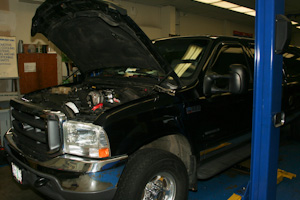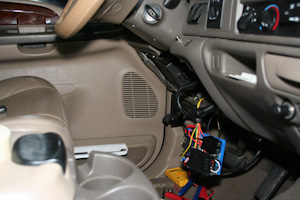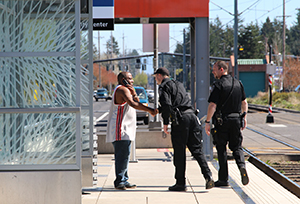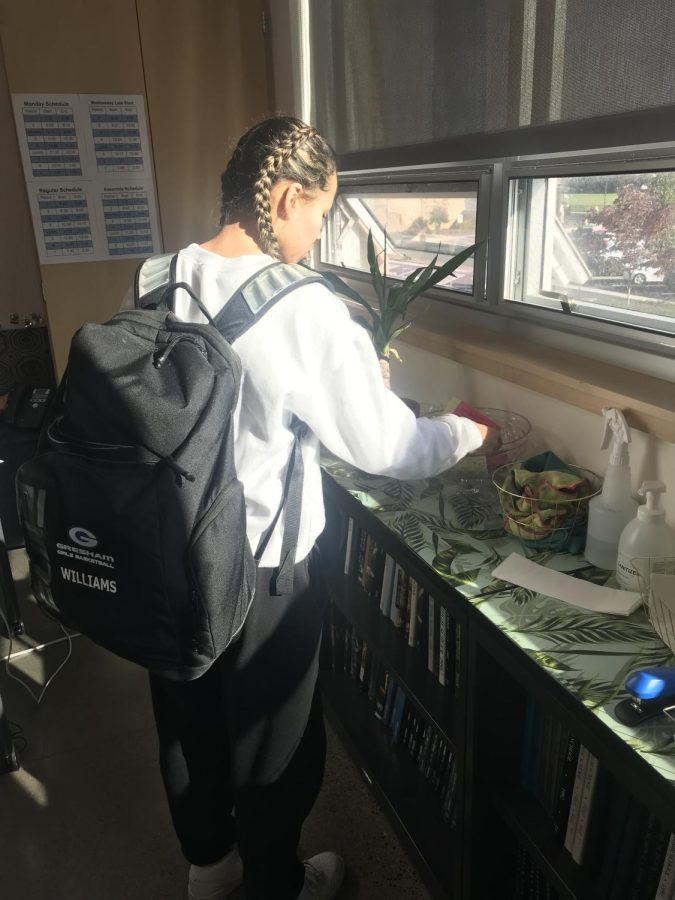
Photo by Tyler Jordan
With gas prices rising and plummeting at random intervals and emissions polluting the air, it is no wonder that some are seeking alternative fuel sources for their gas-guzzling cars and trucks.
Jack Flitcraft is one such person. He taught here for 30 years before retiring and did not lose his connections with the school. After recently purchasing a Ford F-250, he asked Mike Ruff, his friend and the auto shop teacher here, if he and his class would convert the truck’s engine to run on vegetable oil.
“I bought the truck and conversion kit, and at the end of last school year, asked Mike if he was interested,” Flitcraft said.
Using alternative fuels can be beneficial because they do not give off the harmful emissions that gasoline and diesel fuel does and are not obtained by drilling into the ground where there is the risk of spilling or leaking the oil into the surrounding environment.
“I like the idea of not leaving a carbon footprint,” Flitcraft said.
Ruff took on the project with his period four auto service class. They spent about two months working on it and finished last week.
Senior Jason Artz was one of the students who was very interested in the project, and he took a lot of experience away from it.
“I was involved a lot, from teardown to running lines to custom gauges,” Artz said. “This project is a lot of fun. [It was] not just some lesson we don’t really understand, but something that we could really do in a shop or job.”
Artz was not the only student, however, to take a particular interest in this. Many of his classmates dedicated time outside of class to work on the truck and showed an interest in learning the principles and actual mechanics involved.
Ruff stated that the students took the lead and he had very little involvement.
“The guys doing it knew more about it than I did,” Ruff said. “I did not even read the instruction manual.”
The project was introduced shortly after school began, and they got started right away.
“First thing we did was read a packet printed off for the project and get our bearings. Then we started the disassembly,” Artz said. “First we took apart fuel lines, making room for new lines and re-plumbing for fittings.”
The vegetable oil must be preheated to at least 140 to 160 degrees before it can be used as a fuel, so a heater coil was installed in the back of the truck and a small module was installed near the gear shifter inside the car. This little computer is used to switch back and forth between diesel and vegetable oil.
According to Ruff, the driver of the vehicle would not even notice when he or she switches between fuel sources.
“There is no difference in the performance of the truck. It runs exactly the same,” Ruff said.
One of the problems Ruff anticipated was obtaining the fuel. According to Ruff, restaurants used to have to pay to have their used fryer oil taken away, but now, as these conversions become more popular, people are buying waste oil from restaurants as a source of fuel.
“I have a good friend who uses vegetable oil, which means I always have a source of fuel,” Flitcraft said.
However, the vehicle must be properly maintained. Since vegetable oil is a type of fat, letting it get cold while inside the vehicle can cause it to clog up.
Ruff and Flitcraft plan to have an unveiling party this week where they will test drive the truck, and if all runs smoothly, drive it home.

Photo by Tyler Jordan
Ruff saw how beneficial the project itself was for his students and wishes to incorporate it into his curriculum for years to come. He is planning on doing the project next year and is currently looking for other community members who wish to donate their vehicle to be converted for free.
“If you’re interested in not creating more smog and a carbon footprint, then you could use this,” Flitcraft said.





